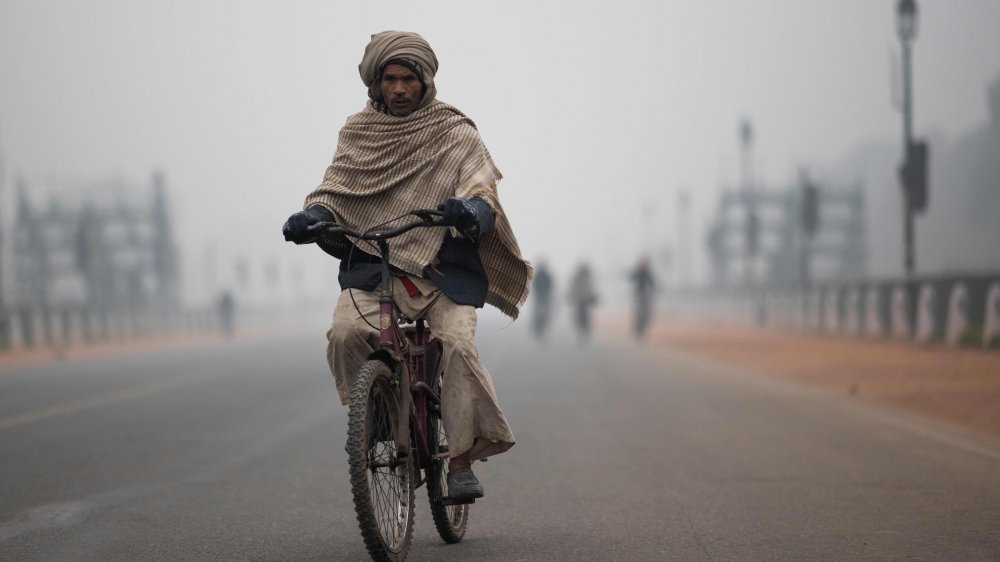Why People In India Can See The Himalayas For The 'First Time In Decades'
If you look at images of Delhi, India from November 2019, you'll see faces snugly covered with surgical masks as people brave the grave outdoors. It had nothing to do with the coming pandemic. Rather, as the BBC reports, Arvind Kejriwal, Delhi's Chief Minister, declared that air pollution had "reached unbearable levels." It basically looked like the sky spent all day chain smoking. And it kind of did. Farmers in neighboring states were burning crop stubble, contributing to the air's toxicity.
The pollution proved so overwhelming that 30 flights were diverted, and school officials distributed five million masks to students. The government barred motorists with either even or odd license plate numbers from driving on designated days in a bid to limit emissions. As one resident lamented, "You can obviously see how terrible it is and it's actually scary you can't see things in front of you."
Even scarier, Delhi didn't even have the dirtiest air in India that year. Per the Australian Broadcasting Corporation, the city of Ghaziabad in the nearby state of Uttar Pradesh had the world's worst air pollution in 2019. Fast-forward to April 2020, and people who previously couldn't see objects right in front of them could feast their eyes on the majestic Himalayan Mountains "for the first time in 30 years."
India clears the air
It's not a breathtaking revelation that when farmers stop burning fields and engines stop burning fuel, the surrounding air gets a lot cleaner. If anything, it's breath-giving. Unfortunately, Indian residents still can't exactly breathe easy because the reason they ceased all that polluting is the novel coronavirus. That's probably the opposite of a surprise, but the speed at which the air cleaned up its act is somewhat stunning. The Australian Broadcasting Corporation reports that India's lockdown started on March 22. Within two weeks, the air had cleaned up its act.
India isn't the only country that's undergone a lockdown-induced makeover. Live Science writes that in March, the pollution reduction that occured in China could actually be seen from space. And with humans diligently embracing the great indoors, other animals have had a field day. Case in point: via the Guardian, at Hong Kong's Ocean Park, two pandas that were 10 years overdue for doing each opened the floodgates of lust after the park closed its gates to humans. It took a pandemic for people to figure out that pandas might be too bashful to shoot their love bamboo with an audience.

